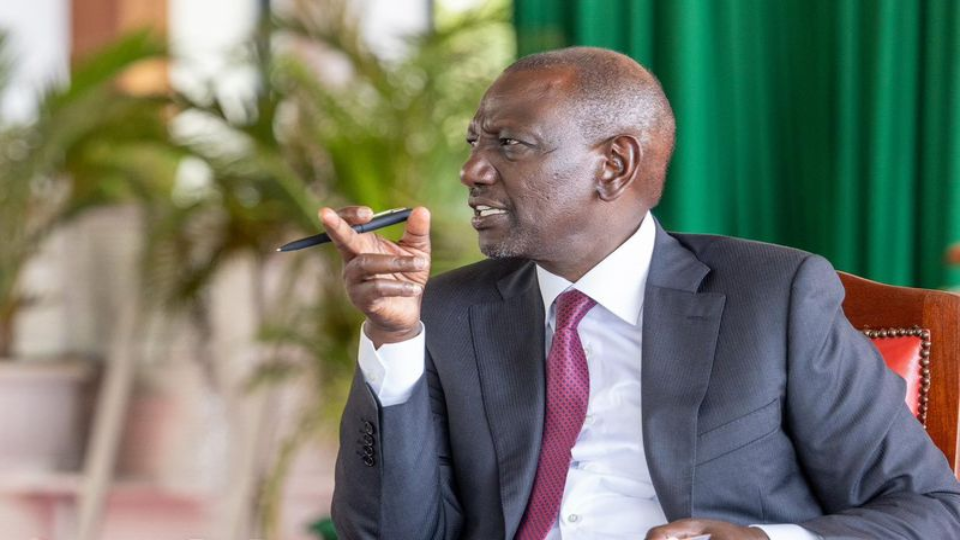Cabinet Slashes Affordable Housing Deposit to 5% to Boost Home Ownership
In a significant move to enhance access to home ownership, the Cabinet has approved a reduction in the deposit requirement for the Affordable Housing Programme from 10% to 5%. The decision, announced on Tuesday, June 24, 2025, is part of President William Ruto’s Bottom-Up Economic Transformation Agenda (BETA), which aims to address the country’s housing deficit and make home ownership more attainable for low- and middle-income Kenyans.
The reduction in the deposit requirement is expected to lower the financial barrier for thousands of Kenyans aspiring to own homes. Previously, the 10% deposit posed a challenge for many, particularly those in lower income brackets, who struggled to save the required amount amidst rising living costs. By halving the deposit to 5%, the government hopes to increase participation in the Affordable Housing Programme, a flagship initiative designed to deliver decent and affordable housing across all 47 counties.
The move comes as part of broader reforms to the Affordable Housing Programme, which has been a cornerstone of President Ruto’s administration since its inception. The programme seeks to address Kenya’s housing deficit, estimated at two million units, by facilitating the construction of affordable homes and offering accessible financing options. The reduction in the deposit is seen as a direct response to public concerns about affordability, particularly among salaried workers who contribute to the mandatory Housing Levy.
In addition to the deposit reduction, President Ruto announced that contributors to the Housing Levy will now qualify for home loans of up to KSh 5 million, with single-digit interest rates. This initiative aims to make financing more accessible and affordable, enabling more Kenyans to purchase homes without being burdened by high borrowing costs. The loans are expected to be administered through partnerships with financial institutions, including SACCOs, to ensure flexibility for borrowers.
The government has also introduced measures to prioritize salaried workers who contribute to the Housing Levy in the allocation of affordable homes. This move is intended to reward those who have been consistently contributing to the programme, ensuring they have first access to completed housing units. For instance, the State Department for Housing and Urban Development recently announced the sale of 220 ready units under the Boma Yangu Machakos Affordable Housing Project, signaling progress in the programme’s implementation.
The Affordable Housing Programme has not been without its challenges. Many Kenyans have expressed dissatisfaction with the mandatory deductions from their payslips, citing the rising cost of living as a strain on their finances. In response, the government has emphasized that the programme is designed to benefit contributors directly by offering them priority access to housing and favorable loan terms. The reduction in the deposit requirement is a clear attempt to address these concerns and make the programme more inclusive.
To further enhance accessibility, the government has extended the programme to Kenyans in the diaspora. A dedicated portal has been launched, allowing Kenyans abroad to register and purchase homes through the Boma Yangu Initiative. This move has been welcomed by diaspora communities, who have shown significant interest in investing in affordable housing units back home.
The deposit reduction is part of a broader set of reforms outlined in the 2025 Finance Bill, which was passed by Parliament on June 19, 2025. The bill includes provisions to provide tax relief for homebuyers, allowing Kenyans to qualify for mortgage tax relief even if they build homes through SACCOs or personal loans. This change eliminates the previous requirement that tax relief was only available for those purchasing completed homes, further incentivizing home ownership.
The Finance Bill also allocates significant funding to support the Affordable Housing Programme. The Treasury has proposed KSh 128.3 billion for the Housing, Urban Development, and Public Works sub-sectors, with an additional KSh 2.6 billion earmarked for the regulation and development of the construction industry. These funds will ensure compliance with building codes and standards, guaranteeing that the homes constructed are safe and of high quality.
Beyond providing affordable housing, the programme is also seen as a strategy to address land fragmentation, a significant issue in Kenya’s agricultural regions. By encouraging urban housing development, the government aims to preserve land meant for food production, thereby supporting both housing and agricultural goals. President Ruto has emphasized that the programme serves a dual purpose: delivering homes while promoting sustainable land use.
Private sector players, such as Willstone Homes, have also played a crucial role in advancing the Affordable Housing Programme. The real estate firm recently handed over more than 100 title deeds at its Juja Grove Estate, demonstrating the potential for public-private partnerships to drive the programme’s success. Such initiatives highlight the government’s commitment to working with private developers to meet the housing needs of everyday Kenyans.
Looking ahead, the government plans to continue expanding the programme, with a focus on completing more housing units and streamlining the application process. The dualling of the 21 km Ruaka-Ruiru Northern Bypass Highway and the actualization of the Nairobi Railway City Project, both approved by the Cabinet, are expected to complement the housing initiative by improving infrastructure and connectivity in key urban areas.
The reduction of the housing deposit to 5% marks a pivotal step in Kenya’s journey toward inclusive growth and economic transformation. By making home ownership more accessible, the government is not only addressing a critical social need but also empowering Kenyans to build wealth through property ownership. As the Affordable Housing Programme continues to evolve, it holds the promise of transforming lives and reshaping Kenya’s urban landscape for generations to come.


